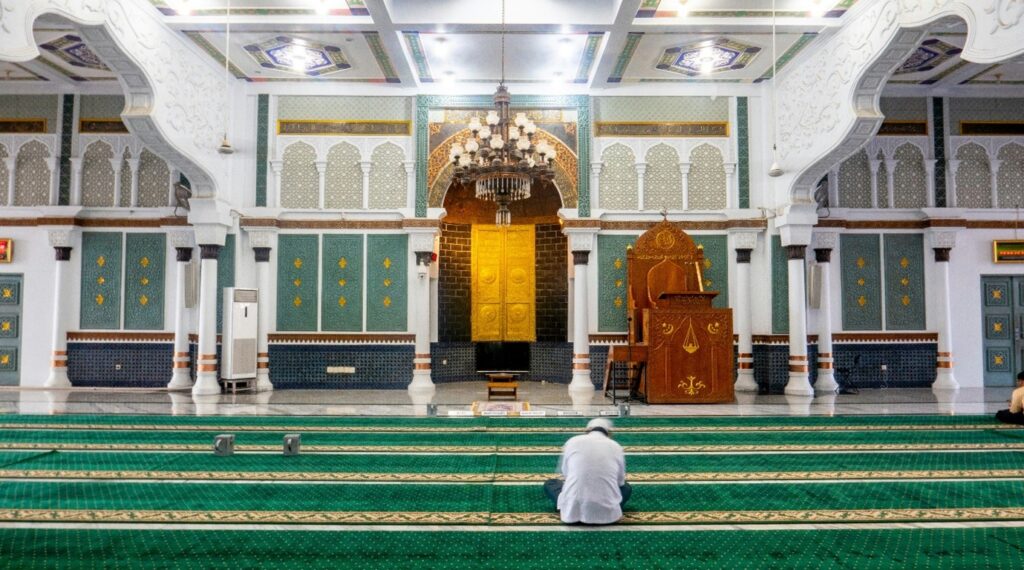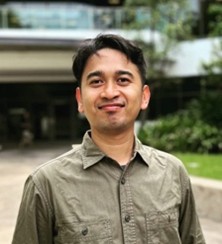
Introduction
Indonesia’s political landscape has solidified following major elections last year. President Prabowo Subianto has continued his predecessor’s political consolidation strategy of sporting a big coalition of parties in the parliament, thus almost effectively neutralising any potential opposition.
This has raised concerns about the weakening of the checks and balances system, the absence of alternative policy debates and accountability.
His ability to accommodate multiple political parties from various backgrounds, including various Islamic ones, influences the makeup of his big and fat cabinet. These Islamic parties have successfully secured ministerial positions despite their opposition of one another in pre-Prabowo years. They prioritise influence and political access to power and policy making rather than disputing issues of governance, indicating a conformity with pragmatic and transactional form of politics.
This article attempts to critically examine the dynamics and future trajectory of Islamic political parties.
Decline of Votes
In the 2024 general election, Partai Persatuan Pembangunan (PPP) only secured 3.87% of the votes, which effectively pushed them out of the legislative body for the first time (the parliamentary threshold is at 4%). Prior to this, Partai Bulan Bintang (PBB) was the last Islamic party that lost all their parliamentary seats, which happened in the 2009 election.
However, despite PPP’s decline, the remaining Islamic-based parties experienced a slight increase in votes. Partai Kebangkitan Bangsa (PKB) secured 11,72% of the votes, Partai Keadilan Sejahtera (PKS) gained 9,14% and Partai Amanat Nasional (PAN) earned 8,28%. These three parties now occupy 169 out of the available 580 seats.
The decreasing number of Islamic parties in Dewan Perwakilan Rakyat (DPR) could point to the dimming vibrancy of political Islam in the legislative body. This also proves that the majority of Muslim voters do not vote for Islamic parties, which comprise less than a third of all DPR seats.
For example, members of Nahdlatul Ulama (NU) prefer to vote for Partai Demokrasi Indonesia Perjuangan (PDI-P) and Prabowo’s Gerakan Indonesia Raya (Gerindra) over PPP or PKB, to which NU has historical affiliation and attachment. A reason for this is that nationalist parties like PDI-P has attracted more NU adherents by establishing Islamic wing organisations such as Baitul Muslimin Indonesia (BAMUSI).
Pragmatic Politics
Meanwhile, new Islamic parties such as Gelora Party and Ummat Party emerged, participated and failed in the last election. Like PBB, both parties obtained a very small fraction of votes (less than 1%). This seems to point out that the appetite for new Islamic parties, instead of the more established ones, is still very low.
Based on the past trends, it is almost impossible for new parties, including non-parliamentary ones, to get plenty of votes instantly. This explains why the parties’ elites shifted and adjusted their strategy in order to survive in the current landscape.
For example, these non-parliamentarian Islamic parties pragmatically chose to foster an alliance with Prabowo’s Koalisi Indonesia Maju (Onward Indonesia Coalition – KIM), instead of improving the cadre and internal systems.
Elites of Gelora and PBB also campaigned for Prabowo, for which they were well rewarded with strategic positions in the cabinet. PBB’s Yusril Ihza Mahendra is now Coordinating Minister of Law and Human Rights. Gelora’s Anis Matta and Fahri Hamzah are both vice ministers in different portfolios (Foreign Affairs as well as Housing and Residential Area respectively).
This is despite their parties failing to pass the parliamentary threshold.
PKB’s pragmatism is also on full display, having joined Prabowo’s KIM that later became KIM Plus, despite previously backing his rival Anies Baswedan. Prabowo later teased the party for “returning to the right path” after their accession to his coalition.
PKB was later awarded two crucial positions. Its chairman Muhaimin Iskandar now serves as Coordinating Minister of People’s Empowerment while its executive Abdul Kadir Karding functions as Minister of Migrant Worker Protection.
Similarly, Prabowo’s loyalist PAN secured nine ministerial positions, whereas PKS, which joined under the KIM Plus arrangement, obtained one.
Securing a cabinet position is significant to these parties for multiple reasons.
Firstly, it accords access to state resources which, through various means, could be utilised to strengthen their base and finance operations such as future political campaigns. By controlling a ministry or a state institution, a political party has the ability to create and distribute jobs as well as projects that keep its internal members occupied.
Secondly, it allows parties to shape policies and control programmes that align with their political agenda. Moreover, a minister’s good performance will reflect positively on their party’s public image and credibility.
Thirdly, securing top ministerial position ensures a degree of political protection from legal scrutiny and law enforcement, although this may depend on that party’s relationship with coalition leaders and Prabowo himself.
All of these suggest that Islamic parties are moving in the same direction, further casting into question the purpose of the party’s Islamic ideology and identity. Evidently, what is relevant to them now are power, access to financial opportunities and bureaucratic connections. The line between Islamic and nationalist parties has thus become blurrier.
This strategy to “play safe” clearly aims to avoid risks of becoming an opposition. It seems that to these parties, electoral survival and political influence outweigh ideological rigidity. Consequently, however, it also contributes towards the disappearance of diverse voices and views in the political landscape, thus a symptom of Indonesia’s declining democracy.
Status Quo Yes, Opposition No
In February 2025, student protests and demonstrations erupted across big cities in Indonesia. Under the banner of Indonesia Gelap (Indonesia in Darkness), such demonstrations aimed to express public dissatisfaction with Prabowo’s policies, such as the free meal programme, budget cuts and many more. Some students were arrested by local police while others were allowed by local governments to share their opinion.
These protests reflect the public’s growing frustration towards the perceived government’s failure to deliver goods and services. Yet, despite their magnitude, Islamic-based parties remained silent.
In the last decade, PKS had actively positioned itself as the primary opposition. They had challenged government policies and advocated for the needs and aspirations of the conservative Muslims, its vote base.
However, PKS’ recent reluctance to criticise the government shows a shift in the political dynamic, one that marks the erosion of the checks and balances system as alternative voices become restricted.
Likewise, the largest Islamic organisations, NU and Muhammadiyah, might replicate the attitude of these Islamic parties, contributing to a homogenised political discourse in which dissenting views struggle to gain traction. A key figure in Muslimat NU, Khofifah Indar Parawansa, recently stated that NU will continue being a loyal supporter of Prabowo’s administration.
This situation raises concern about why more religious elites are taking part in maintaining the status quo rather than becoming an opposition.
Ideally, an opposition serves the fundamental role in any democratic system by providing scrutiny, offering policy alternatives and acting as a counterbalance to the government. Without it, policies risk being unchecked, leading to lack of accountability and potential overreach.
Conclusion
All in all, the stance of Islamic-based parties today is clear: they are close to the government and reluctant to be an opposition. Consequently, they cannot be relied on to express alternative voices and provide checks and balances against the government. This forces the people to take to the streets to express their dissatisfaction and dislike towards the government’s policies. If this trend continues, Indonesia’s democratic space would continue to shrink under the weight of political conformity, while demonstrations and online protests would become more frequent.
Actors in the current political landscape can be said to adopt the “wait and see” approach to Prabowo’s policies. It remains to be seen how Islamic political parties would react to key government agendas and legislative priorities, especially if these could affect their chance at getting re-elected in the next contestation.
